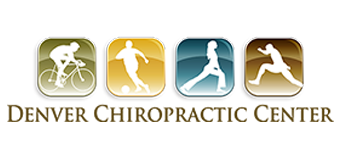By now most of you who read these posts know that my wife blew out her ACL a couple of weeks ago and is having knee surgery soon to reconstruct it. But there’s a part of the story I haven’t shared yet.
When she went down on the slopes of Winter Park, I had a wife yelling in pain, 3 kids kind of freaking out, and I had no idea how to get a hold of the ski patrol. I sat there kind of dumbly watching other skiers and boarders going by hoping that maybe a ski school instructor would appear.
Luckily a good Samaritan stopped and had the ski patrol phone number on a laminated piece of paper in his pocket. I called from my phone and they were there in minutes.
The moral of the story- know the number for the ski patrol where you are skiing or riding. We’re in the process of putting a card together for you all with the popular ski resorts’ patrol numbers on it. (Winter Park’s is 970.726.1480.)
Here is this week’s 1-Page Health News.
Diet: Are Low-Carb Diets Better for Weight Loss Than Low-Fat Diets?
Physicians at Mayo Clinic say that low-carb diets are slightly better than low-fat diets for weight loss, at least in the short term. An analysis of 41 trials that evaluated the effects of low-carb diets on weight loss showed that participants lost between 2.5-9 more pounds (1.13-4.08 kg) than those who followed a low-fat diet. Lead researcher Dr. Heather Fields adds, “The best conclusion to draw is that adhering to a short-term low-carb diet appears to be safe and may be associated with weight reduction.” However, she recommends that people who follow a low-carb diet should avoid highly processed foods, especially processed meats, such as bacon, sausage, deli meats, hot dogs, and ham.
The Journal of the American Osteopathic Association, December 2016
Exercise: Serious Yoga Injuries Are on the Rise, But Rare.
Yoga has become increasingly more popular in recent years and so have yoga-related injuries. According to a new report, nearly 30,000 Americans visited the emergency room for yoga-related sprains, fractures, or other injuries between 2001 and 2014. Despite rising injuries, experts say that overall, yoga appears relatively safe. They add that the potential gains from performing yoga, such as lower blood pressure, lower cholesterol, lower heart rate, and improvements in depression, anxiety, and sleep problems outweigh the risk of injury. Dr. Joshua Harris from the Houston Methodist Hospital comments, “My advice to people is to start slow, don’t push too hard, and find a good instructor who emphasizes proper form and technique.”
Orthopaedic Journal of Sports Medicine, December 2016
Chiropractic: You Can’t Blame Acute Low Back Pain on the Weather.
A recent study investigated the influence of various weather parameters on the risk of developing an episode of low back pain. Among a group of 981 patients with an acute episode of low back pain, researchers found that precipitation, humidity, wind speed, wind gust, wind direction, and air pressure did not increase the risk of onset for acute low back pain.
Pain Medicine, December 2016
Wellness/Prevention: Depression Hurts Smoking Cessation Efforts.
An analysis of data from a Czech smoking cessation clinic reveals that smokers with depression have a harder time quitting. The study included 3,775 patients and found that those with mild depression were 32% less likely to abstain from smoking for one year than those without depressive symptoms, while patients with severe depression were 43% less likely to quit.
Annals of Behavioral Medicine, December 2016




